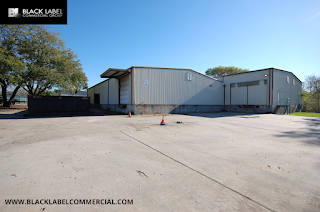4 Important Things to Include in Industrial Property Lease Agreement
A commercial lease agreement in an industrial property sale will be encountered by most enterprises, either as a landlord or a tenant. Understanding what phrases should be included and the ramifications are crucial to ensuring good interactions between the landlord and the renter.
Individual consent of the Parties
Both parties to a commercial leasing agreement should double-check that they are signing on behalf of their respective company entities and not themselves as individuals by mistake. Personal guarantees may also be included in certain leases, and the tenant may request restrictions on private contracts, such as monetary constraints or time limits.
Renewals & Lease Terms
In contrast to most residential leases, commercial lease agreements may last for substantially more extended periods, such as five, ten, or even thirty years. Consider both the length of the first term and the rights to renew when negotiating your business lease. In some instances, the tenant will be granted the right to renew the lease, but in others, the landlord and tenant must agree to renew the Industrial Property Lease before it may be renewed. And don't forget to think about how the rental payments will be affected by subsequent renewals!
Expenses such as rent and utilities
Besides the rent, both parties need to carefully consider other property-related costs and explain who will be responsible for particular property expenditures.." Maintenance fees, care of common spaces (sometimes CAM or Common Area Maintenance), utilities, insurance, and taxes should all be considered. As a result, both the landlord and the renter must agree on how these costs are computed and allocated to other tenants.
A "Triple Net Lease" might also describe your agreement. Assuming this is the case, the renter is likely to be held liable for almost all of the landlord's responsibilities, including taxes, insurance, maintenance/repairs, and the monthly rent.
Clauses to Protect Your Business
In addition, tenants should ask for restrictions to protect their company activities, such as exclusivity and co-tenant clauses. An exclusivity clause may restrict leasing out other areas of a property (or even another property within a set mile radius) to comparable enterprises. A landlord cannot lease another property owned or managed by the landlord to another coffee shop if the other property is less than ten miles away from your coffee shop, for example, if you own a coffee shop. If the anchor tenant of your retail complex leaves and a suitable successor cannot be found, you may terminate your lease. It is a co-tenant clause.
Conclusion
In light of the aforementioned, business lease arrangements in Houston are often more complicated and structured than residential lease agreements. As a result, whether you're the landlord or the renter, it's always a good idea to have legal representation on your side.
.png)



Comments
Post a Comment